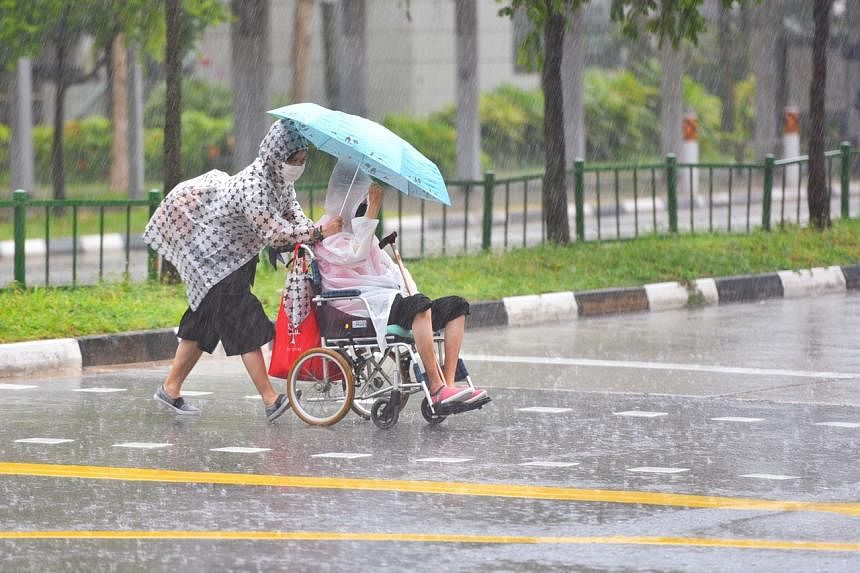SINGAPORE - Parliament unanimously supported the White Paper on Singapore Women's Development on Tuesday (April 5) after a 10-hour marathon debate during which MPs spoke about topics ranging from equal opportunities in the workplace to support for caregivers and changing mindsets.
Here are some suggestions that the MPs made.
A different type of Bond girl
Women are often portrayed as the damsels in distress or sidekicks in shows such as the James Bond movies and hit Korean drama Crash Landing on You, said Ms Poh Li San (Sembawang GRC).
This stereotyping by the media and entertainment industry amplifies biases and contributes to how women are viewed in society, she added.
Calling on the local media industry to help shift perspectives, she suggested the media should place an equal emphasis on men and women and should also share stories that reflect positively about fairness and inclusivity for all genders.
"I certainly hope the next Bond will be a female lead, and (hope for) more female being portrayed as heroines in dramas. We must curate positive stories that will inspire and amplify the right values," said Ms Poh, a former helicopter pilot with the Republic of Singapore Air Force.
A day to show we care
Caregivers often put their own aspirations on the back burner to look after their loved ones, yet their sacrifice is not adequately acknowledged, said Mr Yip Hon Weng (Yio Chu Kang).
He suggested having a Caregivers Day - or even a Caregivers Week - to create awareness and recognition for caregivers.
Business can provide discounts to caregivers on that day, not unlike how they give discounts to servicemen and servicewomen from the Singapore Armed Forces on SAF Day, he added.
"The logistics may have to be fine-tuned, but the goal is to appreciate caregivers for the essential role they play in our society," he said.
Changing office culture
As a police officer decades ago, Workers' Party MP Sylvia Lim (Aljunied GRC) had received "loaded comments" from a male colleague who innocently advised her to put on make-up at work.
"I did not take offence at the time, as I simply dismissed the comment as crazy since we were not running a modelling agency," she told Parliament.
But some women could be more deeply affected, she added, calling on more to be done to address the workplace culture that makes men think they can make such comments, even if innocently.
She said: "We do not want to go to the extreme of resorting to litigation for such matters. But to avoid undue pressure on females in the workplace, employers and society as a whole would need to step up and educate themselves too."
From childcare to family care
Childcare leave should be converted to a more general Family Care leave, so that those who are caregivers of elderly parents will also be able to use it, said Ms Rachel Ong (West Coast GRC).
This will be particularly useful for caregivers who are single and may not have many people to turn to for help, she added.
She suggested that the number of Family Care leave days for such singles should be made mandatory. She also proposed having extended Family Care leave for those whose parents have dementia or conditions that require more support.
Ms Ong said such mandatory Family Care leave can complement flexible working arrangements. Such arrangements are being strengthened through a new set of tripartite guidelines to be introduced by 2024.
Building financial literacy
Workers' Party MP Louis Chua (Sengkang GRC) called for more to be done to help women become more financially literate, citing Central Provident Fund data as of Dec 31, 2020 that showed women are not as well prepared for retirement as men.
For instance, CPF member balances for men are 10 per cent higher than that for women, even though there are roughly equal numbers of male and female CPF members.
While women had higher average CPF balances compared to men up to 35 years of age, men had higher average CPF balances - between six to 35 per cent higher - than women in all other age groups.
Other surveys on financial literacy also found that women were not investing as much as men. In the OCBC Financial Wellness Index 2020, only 60 per cent of women surveyed had investments, compared to 75 per cent of men, noted Mr Chua.
Mr Chua said he hoped that the Government would commission an in-depth study to look at the levels of financial literacy among Singaporeans, and to empower women to take charge of their financial well-being.


